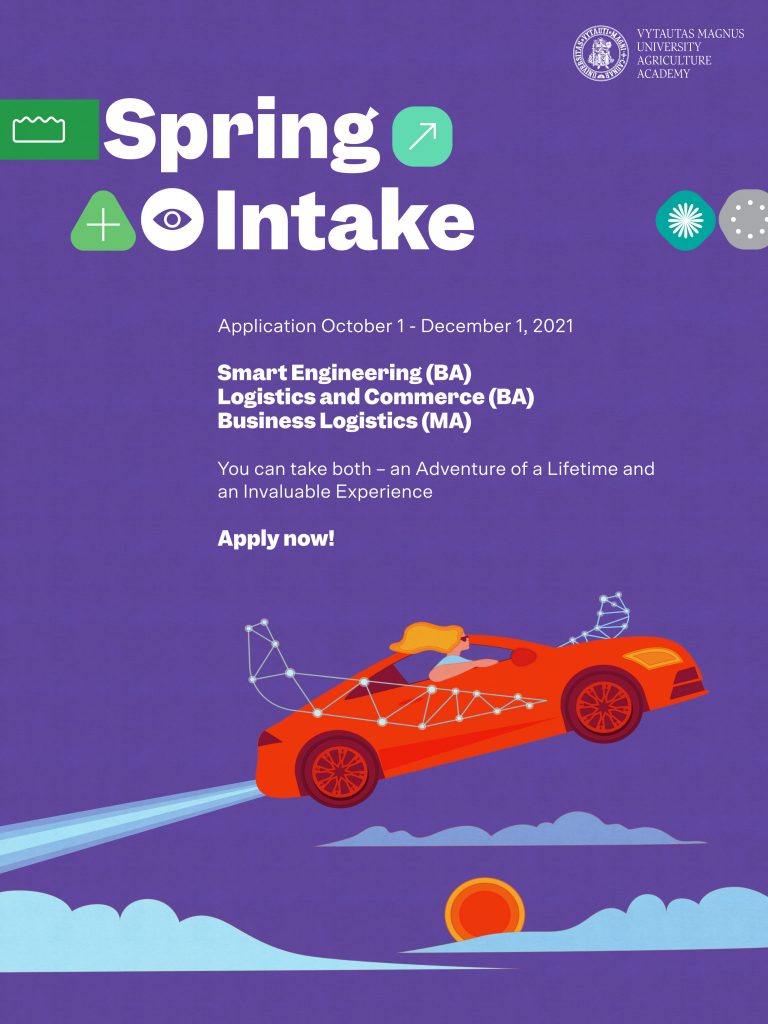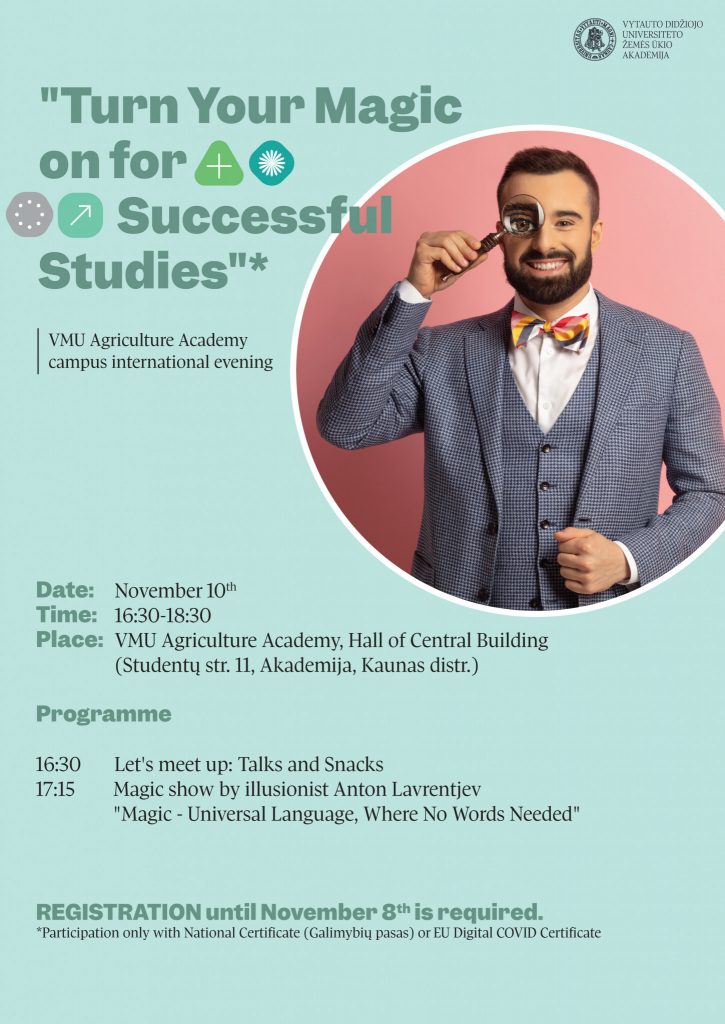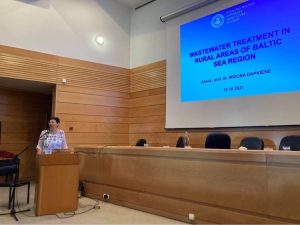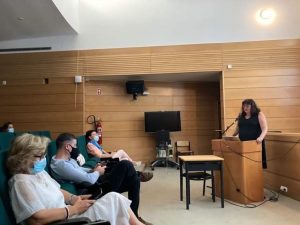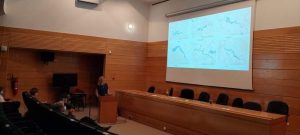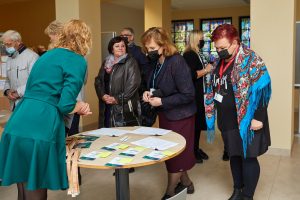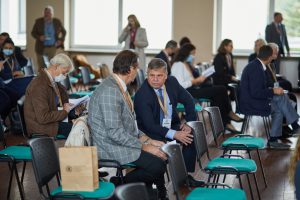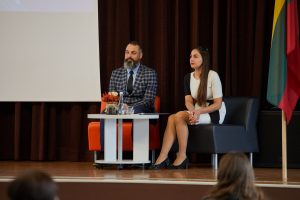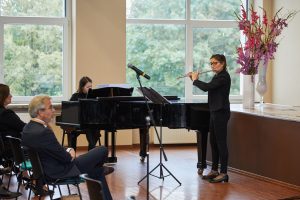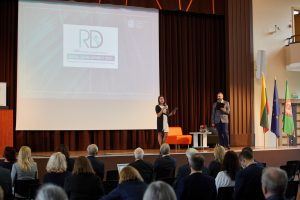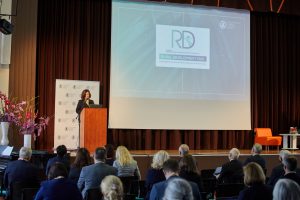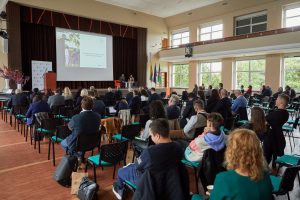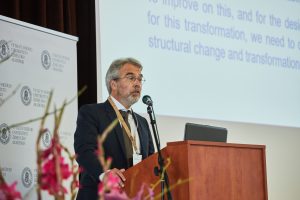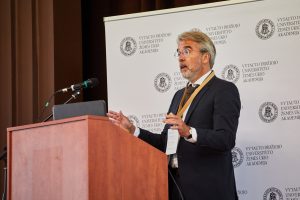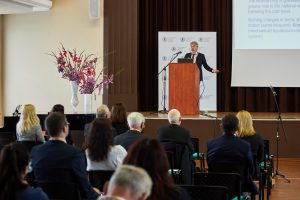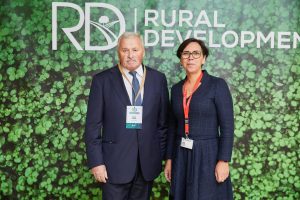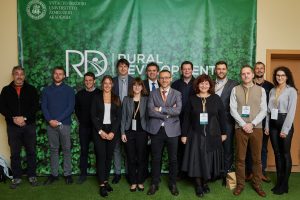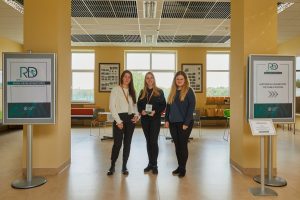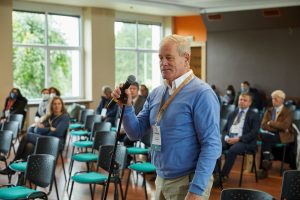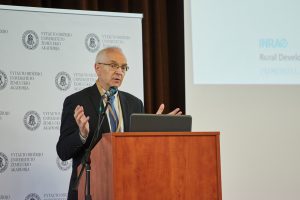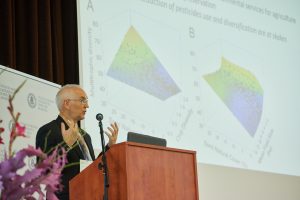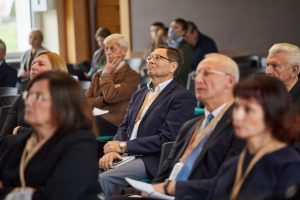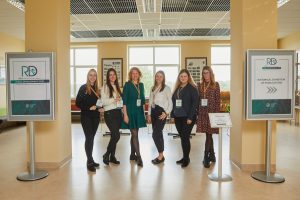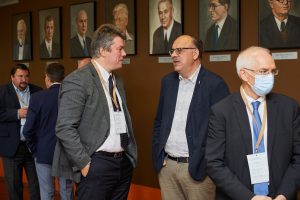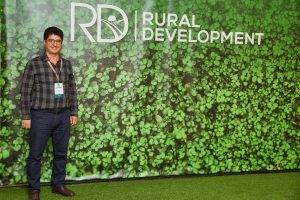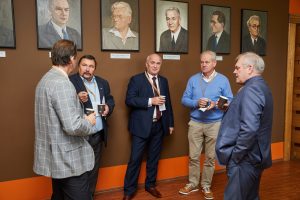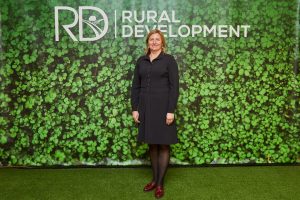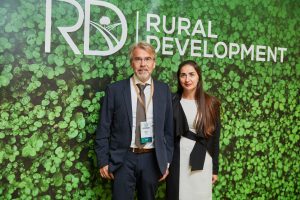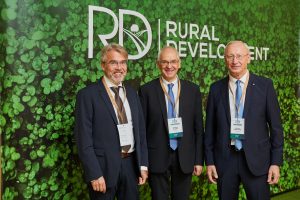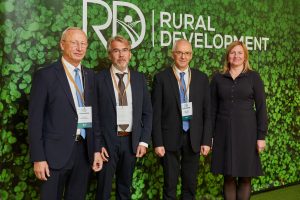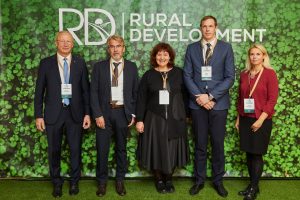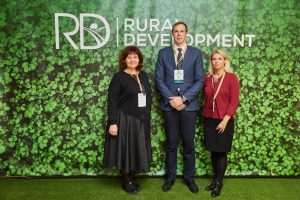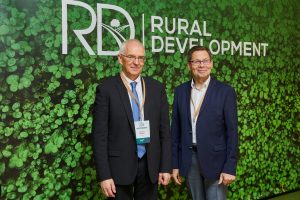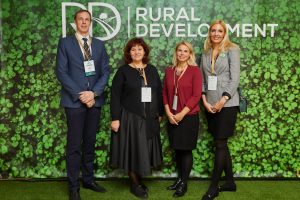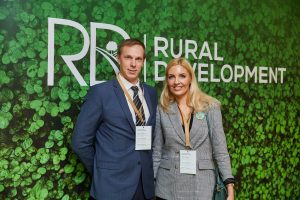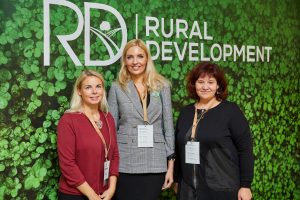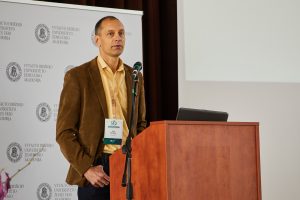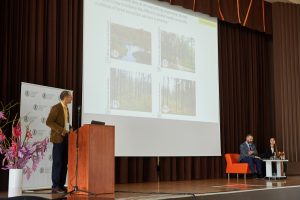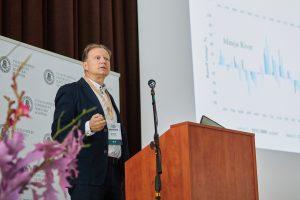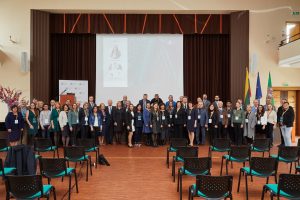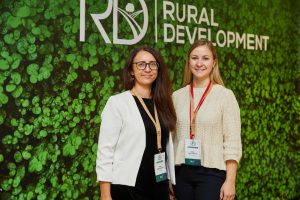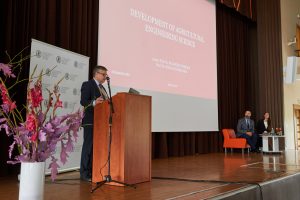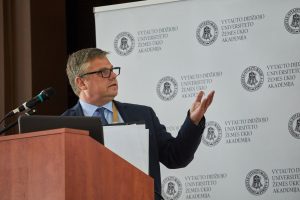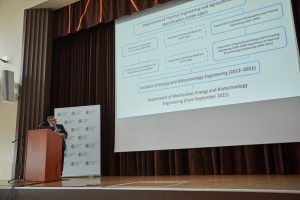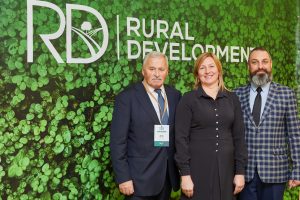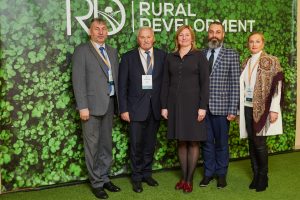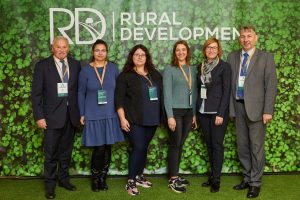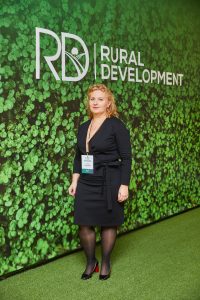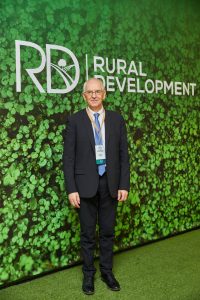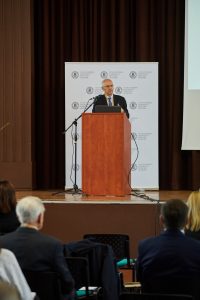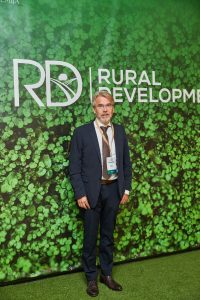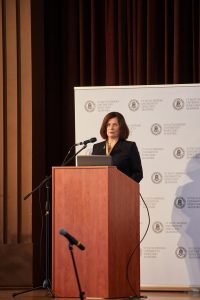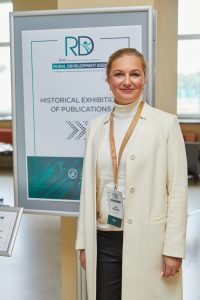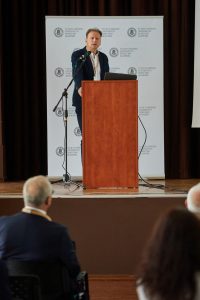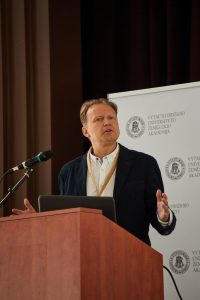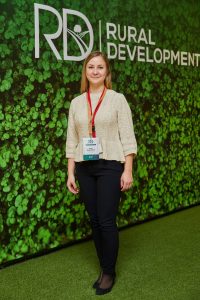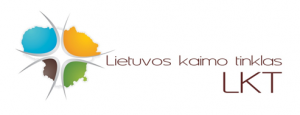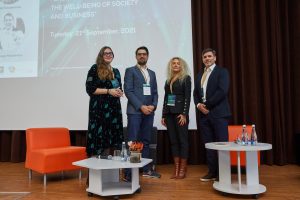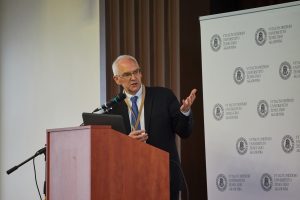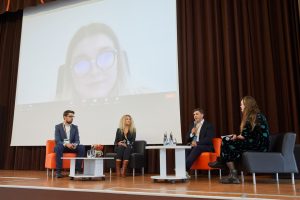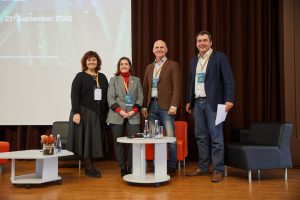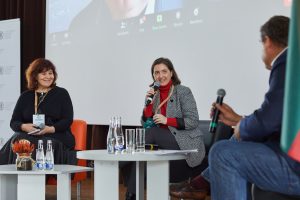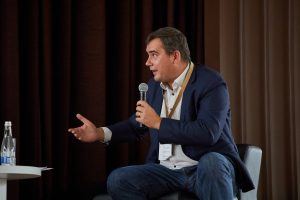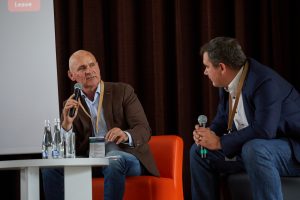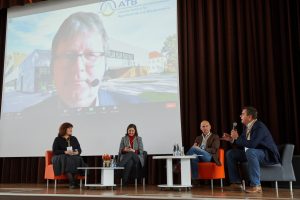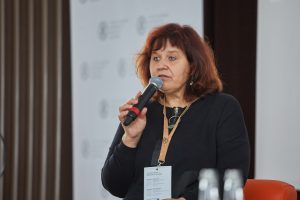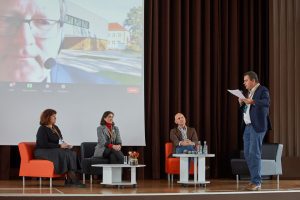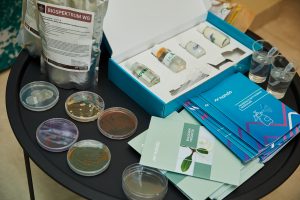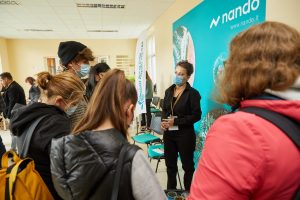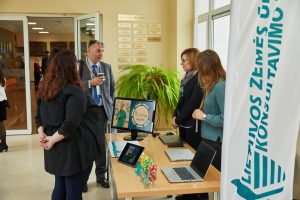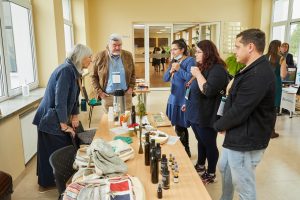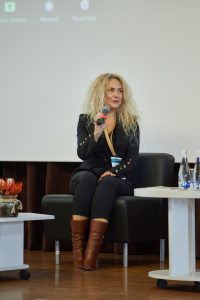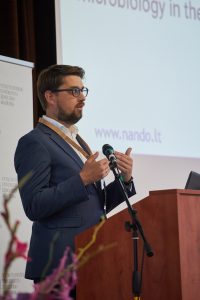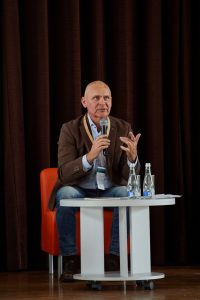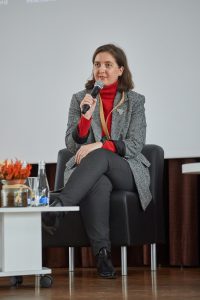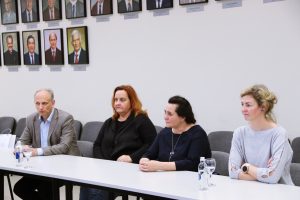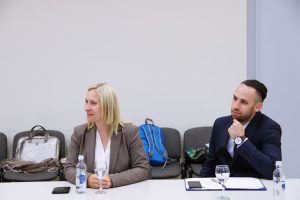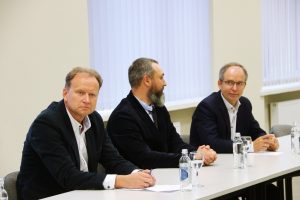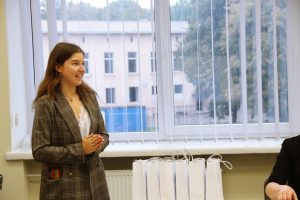VMU AA Spring Intake 2022. Apply Online!
Considering studying abroad? Would like to gain strong knowledge, solid skills, and invaluable international experience? Thinking about an unforgettable European student adventure studying in Lithuania, located in the center of Europe? Would like to live in Kaunas – a European Capital of Culture 2022?
Choosing studies at VMU Agriculture Academy You can take both – an Adventure of a Lifetime and an Invaluable Experience.
Spring Intake Application: October 1 – December 1, 2021.
Spring intake study programmes:
Smart Engineering (BA)
Logistics and Commerce (BA)
Business Logistics (MA)
Information about Application and Admission Procedures: Admission to Degree Studies | VDU
Information about Scholarships: Scholarships | VDU
Apply here
Contact person: VMU Agriculture Academy International Coordinator Ekaterina Makrickiene ekaterina.makrickiene@vdu.lt +370 37 752 200
More Information about VMU Agriculture Academy study programmes: Study programmes for international students | VDU Žemės ūkio akademija
Jurgis Sirusas’ Nominal Scholarship Foundation: 10,000 US Dollars for the Students at VMU Agriculture Academy
Mr Jurgis Saulius Sirusas, a long-standing active member of the Lithuanian community in the U.S., and his wife Gražina have established a foundation dedicated to the memory of Mr Jurgis Sirusas’ father and development of Lithuania’s economy.
The prerequisites for eligibility and initiative of the scholarship were discussed during a remote meeting between Mr Jurgis Saulius Sirusas, his wife Gražina, and representatives of VMU Agriculture Academy administration: Chancellor Prof. Dr Astrida Miceikienė, Vice-Chancellor Prof. Dr. Aušra Blinstrubienė, Head of the Museum of the Agriculture Academy Assoc. Prof. Dr Rasa Pranskūnienė, Head of the Administrative Team at the Agriculture Academy Laima Skauronė, Marketing Coordinator at the Agriculture Academy Deimena Montvydaitė, and representative of the Marketing and Communications Department at the Agriculture Academy Živilė Mediekšienė.
Mr Jurgis Saulius Sirusas, founder of the scholarship, shared the history of his family, their connections to agriculture and Lithuania, and the story behind the initiative to establish the scholarship for the students at the Agriculture Academy. Mr Jurgis Saulius Sirusas was born and raised in Lithuania, was attending an agricultural school by Plikšiai Manor in Mažeikiai district in the interwar period. The agricultural school was marked the beginning of Mr Jurgis Sirusas father’s professional path. During the meeting, Ms R. Pranskūnienė, Head of the Museum at the Agriculture Academy, presented the archive information about Plikšiai Manor where Mr Jurgis Sirusas worked after graduation of the Agriculture Academy. In 1944, the Sirusas’ family fled the country to escape the war and found themselves in a German refugee camp. In the refugee camp, Jurgis Saulius’ father founded and ran a Lithuanian school. In 1949, the Sirusas’ family emigrated to the U.S. where they started building their life by purchasing a small 30 ha farm and establishing a tree nursery. The story shared by Mr Jurgis Saulius Sirusas reflected strong connection of the family with agriculture, nature, development of crop production and horticulture. “There’s no better goal than to support Lithuania’s youth who love agriculture and nature,” – claimed Mr Jurgis Saulius Sirusas. Therefore, the founders of the foundation decided to dedicate the Jurgis Sirusas’ nominal scholarship to the students at VMU Agriculture Academy who prepares the specialists for agricultural sector in Lithuania.
The scholarship foundation of 10,000 U.S. dollars has been provided for 10 years, i.e. 500 EUR two times a year for two students who will have shown exceptional progress and motivation.
Allocation of the scholarship has been sealed in the Memorandum of Agreement signed by Mr Jurgis Saulius Sirusas, founder of the scholarship, and the representatives of the Lithuanian National Foundation.
The Lithuanian National Foundation is the patron of the Jurgis Sirusas’ nominal foundation. The organization uniting the Lithuanians all around the world has been operating since 1944 when it was founded at the refugee camps in Germany. Since 1955, the Lithuanian National Foundation has been operating in the U.S. and supporting the efforts to establish the democratic order and promote national awareness among the Lithuanian youth.
EVENT CANCELLED. Agriculture Academy Campus International Evening
Dear student, this call is for YOU. We are waiting for you at the international evening of VMA Agriculture Academy students.
Let’s get together to know each other and different cultures and turn the magic on for successful studies.
Magical mood is guaranteed.
The event is organized in accordance with national security requirements.
Photographs and videos will be taken during the event.
REGISTRATION until November 8th is required.
Study fair for Lithuanian diaspora at Vytautas Magnus University
At this fair You will get acquainted with the formal and non-formal study opportunities offered by Vytautas Magnus University.
During the event you will find out about:
- possibilities to study at VMU remotely;
- international opportunities offered by the University (internships, exchanges, traineeships);
- possibilities to study at VMU in Lithuanian and in English.
- support provided by the University and the Lithuanian state to foreign Lithuanians, as well as scholarships for students studying Lithuanian migration and diaspora processes;
- presentations of our faculties LIVE and ask questions about specific study programs;
- Opportunities to study Lithuanian language, culture and history at VMU;
- Experiences shared by world Lithuanians studying at the University.
Study fair will be held online:
- October 27, 3-5 p.m. (EEST time) – IN LITHUANIAN, focusing on studies, available in Lithuanian at VMU.
- October 28, 3-5 p.m. (EEST time) – IN ENGLISH, focusing on studies, available in English at VMU.
Registration is open till the 26th of October.
VMU – University of the Diaspora
Ever since 1989, VMU has operated and has been recognized as the university of the Diaspora. Almost every one of its faculties has established close relations with the scientists and artists of the Lithuanian Diaspora and has implemented projects that were a result of joint efforts by Lithuanian and Diaspora scientists.
Over this time period, the university’s community has been joined by such world Lithuanians as Algirdas Avižienis, Bronius Vaškelis, Liucija Baškauskaitė, Arvydas Žygas, Milda Danytė, Viktorija Skrupskelytė, Algis Mickūnas, Birutė Galdikas, Emilija Sakadolskienė, Romas Vaštokas, Violetta Parutis, Dovilė Budrytė and many others. Organized events have included the Lithuanian Language and Culture Course, training for teachers of Lithuanian schools, project of Baltic centres, summer courses, and a traineeship programme for world Lithuanians.
In 2013, the university launched the platform of World Lithuanian University (WLU), whose main activities include a diaspora education programme for the Lithuanian society and the world Lithuanian community, promotion of the history of world Lithuanians, focus on the cooperation between world Lithuanian scientists and researchers as well as students and world Lithuanians who seek to educate and become educated.
This year, as the synergy increased between VMU and its partners who also devote special attention to the affairs of the Lithuanian Diaspora, the event series in October will aim to promote and reinforce the perception that the Lithuanian Diaspora is a part of Lithuania.
More about the events of Lithuanian Diaspora Month
Visit of Teachers of VMU Agriculture academy to polytechnic institute of Beja (Portugal)
The teachers of Vytautas Magnus University Agriculture Academy assoc. prof. dr. Midona Dapkienė (Department of Water Engineering, Faculty of Engineering), prof. dr. Laima Česonienė and assoc. prof. dr. Daiva Šileikienė (Department of Environment and Ecology, Faculty of Forest Sciences and Ecology) visited Polytechnic Institute of Beja (Portugal) according to Erasmus+ Mobility agreement on October 12th to 15th 2021.
The Polytechnic Institute of Beja (IPBeja) is a professional and research oriented public higher education institution, located in the south of Portugal, in the region of Alentejo.
IPBeja is made up of four Schools – the School of Agriculture, the School of Education, the School of Technology and Management and the School of Health, with a range of more than 30 courses on offer. The Institute has more than 2000 students, enrolled in both undergraduate and postgraduate programmes and other professional oriented post-graduate programmes.
The representatives of VMU Agriculture Academy gave the lectures for bachelor and master students in the field of surface water quality, wastewater treatment and its reuse for irrigation, environmental policy and Green Deal. They also presented the oral communications on Environmental Engineering Seminar in Agrarian School of IPBeja. Prof. Laima Česonienė presented the assessment of the impact of hydropower plants on the ecological status indicators of water bodies in Lithuania. Assoc. prof. Midona Dapkienė shared experiences on wastewater treatment in rural areas of Baltic Sea region. Assoc. prof. Daiva Šileikienė presented an analysis of the main principles of organic agriculture – health, ecology, fairness and care.
The teachers had an opportunity to familiarize with the study process and reasearch at IPBeja as well as to discuss the opportunities of Erasmus Mundus project.
10th International Conference “Rural Development 2021”: Focus on Bioeconomy and Climate Change
The 10th anniversary international scientific conference “Rural Development 2021” took place on the 21st – 23rd of September at the Vytautas Magnus University Agriculture Academy (VMU Agriculture Academy). In relation to bioeconomy development in response to the challenges of climate change, the participants of the conference all agreed that pro-active decisions reducing the climate change and securing protection of the depleting biological resources would be necessary with the view towards sustainable development of the world and quality, secure, and clean life of the humankind.
Growing Role of Research that Brings Positive Change
150 experts representing 20 countries gathered for the event both directly and remotely to discuss and propose economic and social innovations and various solutions to boost the bioeconomic processes. Researchers exploring the topics of agro-innovations and food technologies, biosystem engineering and environment integrity, multifunctional approach for sustainable use of bio-resources and other relevant topics, practitioners, policy-makers, representatives of NGOs, young researchers, and students shared the results of the research. The results of social research for sustainable bioeconomy and climate change were presented.
In her welcome speech, Prof. Dr Astrida Miceikienė, Chancellor of the VMU Agriculture Academy reminded the participants of its history. She took the audience back to the year 2003 when the conference “Rural Development” took place at the Academy for the first time to explore the changes that were taking place at that time. “Now, same as then, the world is moving rapidly on the path of change, and the role of science that provides recommendations, forecasts, and develops innovations is particularly important. The mission of the Academy reflects our main goal – to develop and disseminate the scientific knowledge and make sincere effort to secure healthy food and fully fledged living environment for all the Lithuanian citizens. We can do more by keeping up with the global changes and novelties, sharing the innovative ideas, experience, and research results,” – said Prof. Dr A. Miceikienė.
Researchers at the VMU Agriculture Academy – Experts for the European Commission
Mr Pacôme Elouna Eyenga (Belgium), Head of Innovation and Knowledge exchange EIP-AGRI, started the plenary session of the Conference by presenting the key achievements, focus group discussions of the EIP-AGRI (The European Innovation Partnership for Agriculture Productivity and Sustainability) established by the European Commission. The speaker emphasized the importance of knowledge exchange and announced the VMU Agriculture Academy as an important EIP-AGRI partner for the new period, as the researchers at the Academy provide professional expert serves in research and spread of agricultural innovations.
From Identification of Challenges to Dissemination of the Best Practice
Researchers from Germany, France, Sweden, and Lithuania delivered their presentations at the plenary session of the Conference. Key sustainability principles and necessary systemic changes to secure global sustainability were discussed. The researchers called the general public to consider the depleting natural resources and provided hands-on proposals on the preservation thereof. Experts specializing in different areas were invited for more detailed deliberation of the important topics in different sections, and the conclusions thereof were then presented at the final plenary session.
The section dedicated to presentations on agro-innovations and food technologies covered the problems of excessive food consumption, excessive waste amounts and pesticide use, soil preservation in view of the Green Deal. “It is important to think about the Green Deal, new strategies that would help reduce the farming intensity and, at the same time, preserve the soil productivity. The solution could lie in the alternative non-chemical pesticides that reduce the risk to the human, general public, and the entire ecosystem. Today, we already have the possibility of find the solution in fighting the pests without the use of chemicals,” – said Assoc. Prof. Dr Rimantas Vaisvalavičius in his review of the studies presented by the researchers. “The resources are limited. We have to explore the ways to reduce the amounts of waste and the solutions of recycling and reuse. We must think not only about own health, but also about the environment as we are consuming,” – concluded Mr R. Vaisvalavičius, the moderator of the section.
Focus on Natural Resources for Abatement of the Climate Change Processes
Prof. Dr Algirdas Jasinskas presented the key insights of the session dedicated to presentations on biosystem engineering and environment integrity. The researchers’ presentations supported the relevance of the Green Deal goals and the necessity of finding the solution to the challenges of climate change. “Researchers take active interest in the renewable energy possibilities, technology and environmental safety, optimization of agricultural equipment and technologies, sustainable animal husbandry. With the view towards the coming decade, we have sufficient biomass resources, but their use is narrow, and mostly concentrated on biofuel production. Hence, to follow the Green Deal path, we need to take a broader perspective and action,” – said Prof. Dr A. Jasinskas.
The section dedicated to the multifunctional approach for sustainable use of bio-resources focused on the forests as the main research object. The researchers were exploring the forest values, biological and genetic diversity, causes of the climate change. They covered the goals of the EU Forest Strategy for 2030 that provide for adaptation of the European forests to the new conditions as continuation of the socio-economic function and in order to secure viability of rural areas. “People have irreversibly altered the natural course, and it is particularly important to explore the ways to maintain sustainable forests,” – concluded Prof. Dr Darius Danusevičius, the section moderator, in his review of the research findings.
The Importance of Systemic Changes in Process Management and Formation of Society Practices
The section of social research for sustainable bioeconomy and climate change responded to the key questions raised at the Conference including the social practice, social and cultural changes on the path towards the Green Deal, social innovations for bioeconomy development in response to the COVID-19 pandemics, reconsideration of the agricultural and rural development policy system, creation of the smart rural development models, and placing particular attention on the solutions for development of a sustainable food system. “Although a fairly large share of research is still on the conceptual level, the researchers have also shared relevant findings of empirical studies. The topics generated in preparation for the conference were doubtlessly covered at the Conference. The Conference has gathered researchers and practitioners and has enabled them to share the research results, international insights, experience, and ideas,” – concluded Prof. Dr. Vilma Atkočiūnienė in her review of the research presented during the section.
The key Conference goals were achieved successfully: interdisciplinary scientific discussions were promoted, new ideas on the rural development processes in the context of bioeconomy, climate change, innovations, and social context were presented. The event that gathered over 150 internationally recognized researchers has demonstrated that the science is already taking steps towards the safer future. The Conference has enhanced research collaboration, supported the need and prospects for the business and science synergy, and has provided the grounds for further collaboration.
You are welcome to listen to the presentations of the plenary session of the international scientific conference “Rural Development 2021” and reviews of the section presentations at the final plenary session.
Business and Science Forum: Challenges and Prospects of the Green Deal Addressed
The Forum – International Conference “Green Deal: Guidelines Improving the Well-being of Society and Business” took place at the Vytautas Magnus University Agriculture Academy (VMU Agriculture Academy) on the 21st of September. The leaders of science and business of an international scale held discussions in the efforts to find the solutions for more efficient use of natural resources enabling preservation of the biological diversity, reducing the pollution and securing the well-being of people at large through development of sustainable economy of the EU.
The participants of the Forum were welcomed by the event hosts at the expo area where the natural product producers, the Association of Cannabis Growers, Processors and Business Innovators (KAPVIA) and raw fruit and berry dried pulp sheet producer Dream Food, shared their best practice and experience. The participants could also hear more from the companies offering innovative solutions for business participating at the expo, such as Nando Labs, UAB conducting research in chemistry, providing raw chemicals and research consultancy services. The Lithuanian Agricultural Advisory Service presented the Applied Innovation Research and Results Information System (TITRIS), precision farming, and the Integrated Plant Protection Information, Advisory, and Training Information System (IKMIS).
Special Role of Research and Interdisciplinary Knowledge
Business, research, and political representatives participated in joint discussions of the role of science in implementation of the farm to fork strategy, explored the ways and measures to secure healthy and environmentally friendly food for the consumers and reduce food waste. Participants of the Forum placed particular focus on the challenges associated with the development of the European Green Deal, exchanged their ideas on investments into environmentally neutral technologies and innovative business solutions.
The European Commission has set the target of at least 55% cut of the greenhouse gas emissions by 2030 (compared to the level of 1990) and expects Europe to become the first climate-neutral continent on the planet by 2050. “These ambitious goals have the key role of guiding us in the right direction. Even if we fail to fulfil them, it won’t mean we will have failed, as the progress we’ll have done will help us stay on the right path,” – said Ms Kristina Simonaitytė, Advisor to the Minister of Agriculture of the Republic of Lithuania, who also participated in the discussion.
Mr Aušrys Macijauskas, the Chairman of the Lithuanian Grain Growers’ Association, shared his concern with the Forum participants, namely, that the significant drop in EU᾽s food production estimated by the researchers in the future may lead to a considerable increase in the imports of low-cost, unsustainable food products from the third countries.
According to Mr A. Macijauskas, there are great challenges ahead of us, and we still do not have any one-fit-all simple solution that would enable us to overcome them successfully in order to secure biological diversity, become climate-neutral, and produce sufficient amounts of food for the consumers. “We are capable of achieving the goals. This, however, requires considerable investments and greater involvement of researchers. We need educated farms, smart equipment for precision farming enabling 5- to 10-fold reduction in the use of pesticides. We also need the systems providing timely detection of plant diseases and pests,” – said Mr A. Macijauskas.
Europe, the First Climate-Neutral Continent: Challenge Turned Reality
Both global and national efforts have been made to explore the ways of adaptation to the consequences of the climate crisis, such as growing droughts, floods, and other natural disasters, and the methods of sustainable farming to make sure that the farming activity by the human is not environmentally damaging. Nonetheless, the participants of the Forum have agreed that there is still a lot to be done in this respect.
“Agriculture is a sector that is still insufficiently digitalized and yet remains fairly conservative. Today, we are talking about multiple steps that need to be made in order to have true transformation. We need a wider perspective to be able to see what should be done,” – said Ms Kristina Šermukšnytė-Alešiūnienė, Director of AgriFood Lithuania DIH and Director of the Lithuanian Cluster Network.
Mr Jonas Ignatavičius, CEO of Nando Labs, UAB, who delivered his presentation “The Role of Water in Agricultural Spray Solutions”, mentioned that people’s mindset and disbelief in the Green Deal would be the greatest challenges at the moment. “We cannot take a step back. Changes are inevitable and we will have to be prepared for them. The businesses that will take the first steps, will gain the most, but assistance from the Government is what they need,” – said Mr Ignatavičius.
The ideas of economic, environmental, and social sustainability are most noticeable in Iceland, the country with impressive resources of geothermal energy. The success story of this country was shared at the Forum by Prof. Dr Inga Minelgaitė (University of Iceland) in her presentation “Make Sustainability Stick for Society and Business: The role of societal culture. Case of Iceland”.
Prof. Dr Vilma Atkočiūnienė representing VMU Agriculture Academy, Mr Andreas Meyer-Aurich representing Humboltd University of Berlin, Leibniz Institute for Agricultural Engineering and Bioeconomy, and Ms Ieva Valeškaitė, Vice-Minister of the Economy and Innovation, also participated in the discussions.
The aim of the Forum was to support the discussions on the strategic approaches, challenges, and possibilities in development of the sustainable economy of the EU; business initiatives for effective use of resources to secure circular economy and biological diversity through reduction of pollution that affects local and global decisions with the view towards the well-being of people and business.
The discussions that took place at the Forum demonstrated that the science, business, and Government share the same views regarding the direction to be taken in implementation of the Green Deal. It is, however, also important to find common measures that would be assisted by the Government and researchers in terms of their implementation. Business, in turn, should take initiative in implementation of the Green Deal objectives. The companies that shared their innovative solutions at the Forum agreed that the Green Deal direction is feasible. It is, however, obvious that the collaboration between business, science, and Governmental sectors and the confidence in a more sustainable future are needed.
Project “Implementation of Communication Measures Promoting the Effective Application of RDP for Innovation in Rural Areas, Development of Short Food Chains, Promotion of LEADER Cooperation and Sustainable Bioeconomic Solutions” No. PLKT-KK-20-2-09779-PR001 was financed under the Lithuanian Rural Development Program 2014–2020. The project is supported by the European Agricultural Fund for Rural Development and the Republic of Lithuania.
Visit of Transform4Europe Alliance representatives at VMU Agriculture Academy
On September 16 Vytautas Magnus University Agriculture Academy was visited by the partners of the European Univeristy Transform4Europe Alliance: a delegation from the University of Silesia in Katowice (USil) from Poland and representatives of the Estonian Academy of Arts (EKA). The guests were greeted by International Coordinators A. Nausėdienė and E. Makrickiene. During the meeting, the possibilities of cooperation in science and studies were discussed. The guests were introduced to the activities of the Aquaculture Center.
The meeting at the Agriculture Academy was a part of the Transform4Europe alliance partners’ visit to Vytautas Magnus University on September 15-17. The project partners and representatives of VMU faculties discussed the most urgent issues, such as new mobility patterns, research models, the perspectives of setting up joint master’s programs, and emerging research opportunities. Student council representatives introduced the guests to possible joint study and leisure initiatives.
We are delighted and proud that Vytautas Magnus University was chosen as the first destination for an experience sharing visit among Transform4Europe partners. We hope that this visit will strengthen academic cooperation and hasten the goals of the Transform4Europe initiative and that such visits will become a common practice among seven partner universities: Saarland University (Germany), University of Alicante (Spain), Estonian Academy of Arts (Estonia), Silesia University In Katowice (Poland), Sofia University St. Kliment Ohridski (Bulgaria), University of Trieste (Italy) and Vytautas Magnus University (Lithuania).
More information about Transform4Europe.
Competition for Exchange Studies and Traineeships
VMU International Cooperation Department invites all students of the VMU take advantage of an opportunity and apply for student exchange and internship abroad. You only need to fill the application for the competition: make the first step towards your dream!
We offer even four different programmes for international mobilities:
- Erasmus+ studies (EU countries). Submit your applications by 4 October 2021.
- VMU bilateral exchange and Erasmus+ studies (for non-EU /EEA countries). Submit your applications by 4 October 2021.
- Erasmus+ internships (EU / EEA countries). Submit your applications by 3 October2021.
- International internships (non-EU / EEA countries). Submit your applications by 31 October 2021.
Undecided where to go? On September 22–24 join Erasmus Days’21 during which you will be able to find out more about exchange opportunities. The events will allow you to get to learn about the mobility opportunities, hear about experiences of other students, and join various interesting and meaningful initiatives. During these three days full of both online and on-site events, students will share their experiences, meals, participate in competitions, hike, watch movies and do other fun and exciting things.
Greetings from the Chancellor of the VMU AA on 1 September
Dear students, colleagues, graduates – all community of VMU AA
I wish you all a Very Happy New Academic Year!
- About
- About Agri-Food BM programme
- Academic infrastructure units
- All events
- All news
- Aquaculture center
- Archives
- Biosystems Engineering
- Center of Animal husbandry selections, breeding values and dissemination
- Centre of Biosystems Engineering, Biomass Energetics and Water Engineering
- Circular Biobased Economy
- Climate change
- Contacts
- Contacts
- Events
- Events archive
- Faculties
- For business and society
- Innovative products
- International Cooperation
- International projects
- Joint Research Centre of Agriculture and Forestry
- Journal “Human and Nature Safety”
- Laboratory of Technology Safety
- Laboratory services
- Living Environment
- More labs
- News
- Project
- QUALS project description
- Research
- Research areas
- Scientific events
- Scope
- Sitemap
- Studies
- Study programmes
- Technology Transfer & Commercialization
- THE ROLE OF ORGANISATION IN THE PROJECT
- THE ROLE OF ORGANISATION IN THE PROJECT
- THE ROLE OF ORGANISATION IN THE PROJECT
- The Study Process
- Žemės ūkio žinių ir inovacijų sistemos klasteris





